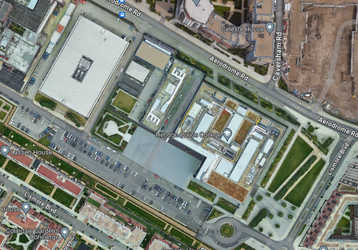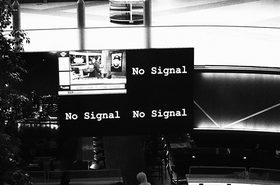The UK's Home Office is planning to migrate all the systems and services out of a core Police data center located in Hendon, northwest London, reports UK Authority.
The data center is government-owned, and has been home to the Police National Computer - a database of more than 130 million items - for the past 50 years.
The Hendon Data Centre spans 7,231 sqm (77,834 sq ft) and is located on Aerodrome Road.
Housed at the same site as the Metropolitan Police's main training college, the Police National Computer is accessed 24/7 by hundreds of thousands of officers, police staff, and civil servants. It stores information on people who have been cautioned or convicted, as well as around 120 million entries about vehicles and drivers.
Around £10 million ($12.7m) is being dedicated to migrating out of this data center, and is part of a £600m ($760.3m) project to rehouse everything in a new "Law Enforcement Data Service," expected to be ready by the end of 2025.
The Police National Computer will then be decommissioned from March 2026.
The Law Enforcement Data Service (LEDS) is cloud-based and forms part of a three-year migration plan. The end goal is for “infrastructure [to be] physically decommissioned, staff based at the data center are moved to alternative offices in line with policy, [and] the data center is handed back to Home Office property services.”
The entire project is aimed to be completed by March 2027.
Thus far, only a prior information notice for the data center migration has been shared. The Home Office will open bidding to potential suppliers during the summer of 2024. Bidders must "manage the exit from Hendon data center… the exit will need to ensure the new data center is prepared and set up to receive migrated services, services are migrated out of HDC.
“Any critical interim sustainment works in HDC [must be] managed and delivered prior to exit. Systems and services will be migrated to alternative data centers, cloud, or other destinations the partner will ensure all security, assurance, and accreditation is achieved.”
The LEDS has been criticized by Privacy International as being a potential threat to privacy and other rights. According to PI, the LEDS will combine data sets that are currently siloed meaning that information will be much broader than current single database searches.
PI states that it was told LEDS needed to replace the existing solutions due to the fact the Police National Supercomputer and adjacent National Database are expensive and difficult to support and maintain. The data hosted by the LEDS will combine evidential and intelligence material, thus risking over-policing and other concerns such as watchlists for facial recognition.







